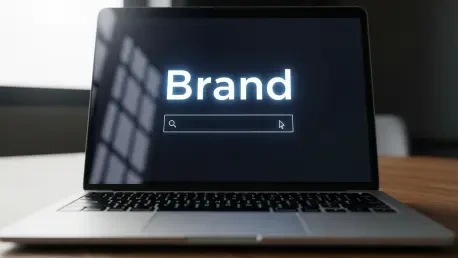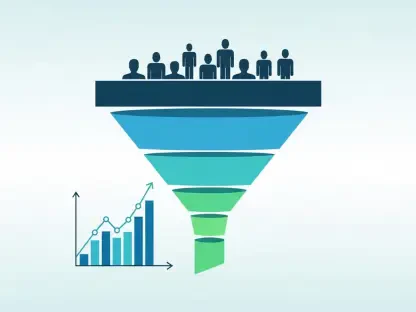Dive into the world of digital marketing with Anastasia Braitsik, a globally recognized leader in SEO, content marketing, and data analytics. With her finger on the pulse of online trends, Anastasia has helped countless brands navigate the complex landscape of online visibility and reputation management. In this exclusive interview, we explore the power of brand mentions, why tracking them is a game-changer for businesses, the different forms they take, and the tools and strategies that can elevate a company’s digital presence. From understanding their impact on search engines and AI systems to setting up effective monitoring systems, Anastasia shares actionable insights for brands looking to stand out in a crowded online space.
How would you explain the concept of a brand mention to someone new to digital marketing?
A brand mention is simply any reference to your company, product, or service online, whether it’s in a blog post, social media update, forum discussion, or news article. It doesn’t necessarily have to include a link back to your website. Think of it as a digital shout-out—every time someone talks about your brand, it’s a signal of how visible or relevant you are in the online world. It’s a foundational piece of understanding your brand’s reach and reputation.
Why do you believe brand mentions play such a critical role in shaping a company’s online presence?
Brand mentions are like digital breadcrumbs that show how far your brand’s influence spreads. They’re a direct indicator of awareness—how many people are talking about you and in what context. Beyond that, they impact how search engines and even AI systems perceive your authority. The more credible mentions you have, the more likely you are to show up in search results or AI-generated recommendations, which can drive traffic and trust. Plus, they give you a window into public sentiment, letting you address concerns or capitalize on positive buzz.
Can you share how tracking brand mentions helps businesses get a handle on their reputation?
Tracking mentions is like having a real-time feedback loop. It lets you see what people are saying about your brand across platforms—whether it’s praise on social media or criticism in a forum. By monitoring these conversations, you can respond strategically, whether that means thanking a happy customer or addressing a complaint before it spirals. It’s about shaping the narrative around your brand rather than letting it unfold without your input. This proactive approach can turn potential crises into opportunities to build trust.
What’s the connection between brand mentions and a company’s credibility with search engines or AI tools?
Search engines and AI systems use brand mentions as a trust signal. When your brand is referenced frequently, especially on reputable sites or in meaningful discussions, it tells algorithms that you’re a relevant and authoritative player in your space. For search engines, linked mentions can boost your SEO by passing authority and driving traffic. For AI tools, consistent mentions across trusted sources—like articles, reviews, or forums—make it more likely that your brand will be recommended in answers or summaries, influencing user perceptions directly.
How can businesses use competitor mention tracking to gain a strategic advantage?
Keeping an eye on competitors’ mentions is a goldmine for market intelligence. It shows you where they’re getting coverage, which outlets or communities are talking about them, and what kind of sentiment they’re generating. This can reveal gaps in your own strategy—maybe there’s a platform or topic you’re missing out on. It also helps you benchmark your visibility against theirs through metrics like share of voice. Essentially, it’s about learning from their wins and weaknesses to refine your own approach and carve out a stronger position in the market.
Could you break down the different types of brand mentions and their unique benefits?
There are three main types I focus on: linked mentions, unlinked mentions, and AI mentions. Linked mentions include a direct backlink to your site, which is fantastic for SEO because they pass authority and can drive traffic. Unlinked mentions don’t have a link but still build awareness and credibility—plus, they’re often opportunities to reach out and convert into backlinks. AI mentions, where your brand appears in AI-generated responses, are increasingly important because they shape how users perceive you and can directly influence decisions. Each type plays a distinct role in amplifying your digital footprint.
What’s the simplest way for a small business to start tracking brand mentions without breaking the bank?
For small businesses, starting with free tools is the way to go. Google Alerts is a great entry point—it’s easy to set up and sends you email notifications whenever your brand name pops up in news, blogs, or other indexed content. Just input your brand name, including any common misspellings, and maybe even key products or team members’ names. The catch is it doesn’t cover social media or forums, so you’ll also want to do manual searches on platforms like Instagram, Reddit, or X to catch those conversations. It’s a bit time-consuming, but it’s a solid baseline to understand your online presence.
Why might a business benefit from investing in paid social listening or monitoring tools?
Paid tools take tracking to the next level by offering comprehensive coverage across social networks, news sites, blogs, and even niche forums—all in one place. They often come with features like sentiment analysis to gauge if mentions are positive or negative, trend tracking to spot patterns over time, and filters to cut through irrelevant noise. For businesses with a growing online presence or those in competitive industries, these tools save time and provide deeper insights, like how your visibility stacks up against competitors. It’s an investment in efficiency and strategic decision-making.
What are the first steps a business should take to set up an effective brand monitoring system?
The first step is defining what to track—start with your brand name, including variations or misspellings, and extend to product names, key personnel, or even industry-specific terms. Next, choose your tools, whether it’s free options like Google Alerts or a paid platform for broader reach. Then, set up alerts and filters to prioritize high-impact mentions, like those from influential sources, and avoid spam or irrelevant content. Finally, make sure the right team members are looped in to handle specific types of mentions—social for community engagement, PR for press coverage, and so on. It’s about creating a streamlined process from the get-go.
How can a company ensure they’re responding to brand mentions in a consistent and impactful way?
Having a response playbook is key. This is a set of guidelines that outlines how to handle different types of mentions—when to engage, escalate, or ignore. For instance, respond to positive feedback or genuine questions to build relationships, escalate negative high-visibility mentions to PR for damage control, and skip spam or irrelevant chatter. Make sure every team member knows the protocol and the tone to use. Consistency builds trust, and a playbook ensures you’re not reacting impulsively but with a clear strategy that aligns with your brand voice.
What’s your forecast for the role of AI mentions in shaping brand visibility over the next few years?
I believe AI mentions will become a cornerstone of brand visibility as more users turn to AI-driven tools for quick answers and recommendations. With platforms like ChatGPT or Google’s AI Overviews gaining traction, being referenced in their responses will be a major driver of trust and traffic. Brands that focus on building a strong, consistent presence across credible sources—think trusted publications, user discussions, and clear website content—will have a significant edge. It’s not just about quantity but quality of mentions, as AI systems prioritize reliability. Over the next few years, optimizing for AI visibility will likely become as critical as traditional SEO.









